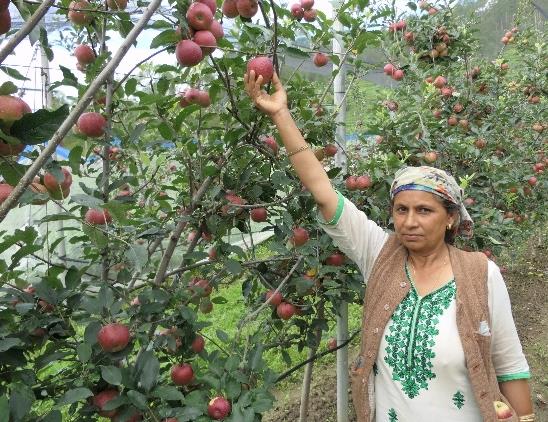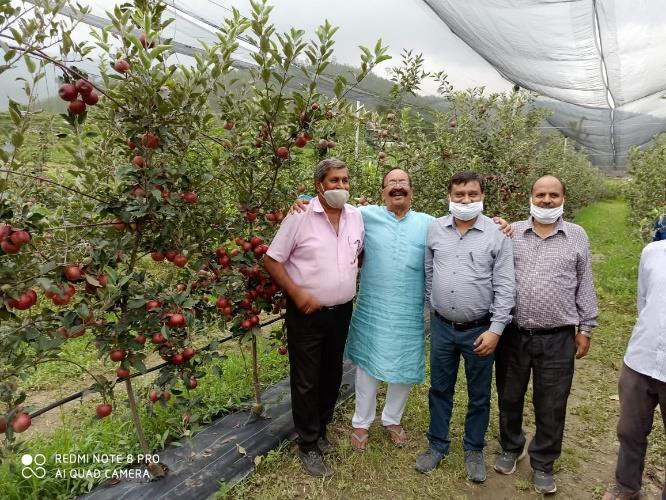Farmer’s Day, popularly referred to as Kisan Diwas, is observed nationwide on December 23 each year. This particular day is marked to show appreciation, thanks, and recognition for the contributions made by the nation’s farmers. The day is observed to commemorate the birth anniversary of the former Prime Minister of India Chaudhary Charan Singh, known as the “Champion of Peasants,” to recognise his significant contributions to the agricultural industry.
In 2016, PM Narendra Modi announced the goal of ‘doubling the farmers’ income’ in the country by 2022 as compared to the base year 2015-16. The idea was to improve the lives of the farmers through the 75th-year anniversary celebrations of India’s Independence, fondly called ‘Azadi ka Amrit Mahotsav’. However, owing to the COVID-19 pandemic and the economic backlash caused because of it, India has not been able to meet its target.
While the incomes of the farmers have not doubled as yet, there have been efforts made across the countries by various entities to ensure that they are faring better. In this effort, India Incorporated has also played a significant role.
CSR Initiatives Improving Farmers’ Incomes in India
Apple Unnati Project by Coca-Cola India Private Limited (CCIPL)
A key pillar of Coca-Cola’s ESG priorities is the Company’s Fruit Circular Economy initiative in India, which aims to aid the Indian agri-ecosystem by enhancing farming efficiency, strengthening forward linkages, and building food-processing capacity in the country, addressing challenges of low farm productivity, poor technology adoption and fruit wastage in the horticulture sector. Coca-Cola recognizes farmers to be its true suppliers for key ingredients and values the partnership by focusing on their overall well-being.
Along with partner organizations, Coca-Cola India has been working with fruit farmers since 2011, under the Company’s flagship project – Unnati, which currently covers 5 fruits – Mango, Apple, Orange, Grapes and Litchi and priority commodities like sugarcane. The project has been successfully extended to 11 states, spread across nearly 1,00,000 acres, and 2000+ demo farms while benefiting 350,000+ farmers so far. Coca-Cola India’s plan for the next three years is to cumulatively benefit 500,000+ farmers through training and capacity building.
The state of Uttarakhand has appropriate climatic conditions for cultivation of apples. Despite this, the productivity in the state was abysmal. CCIPL teamed with Indo Dutch Horticulture Technologies Pvt. Ltd. (IDHT) as its Implementation Partner of Project Apple- Unnati in Uttarakhand to promote the well-being of farmer communities, boost yields, and propagate sensible use of natural resources.
The Project Apple Unnati aimed to increase apple productivity in India, particularly in Uttarakhand, by introducing global best practices, primarily focusing on ultra-high-density plantation (UHDP), resulting in a significant increase in quality, productivity, and profitability per unit of land, and thus significantly increasing farmers’ income. This in turn was also expected to serve as a stimulus for India’s apple production to become self-sufficient.
In the traditional method, apple trees are planted at a distance of 5-7 metres, whereas in the HDP method it is done at every one metre. In traditional methods, it is difficult to get a crop for harvesting even after six years but in UHDP method it was possible to get the crop from second year onwards with yields expected to go up to 50 kg per tree from fifth year, which is unimaginable, he added. Due to early maturity and better returns, many farmers in Uttarakhand are taking up this new method of apple cultivation.
About 700-odd acres of apple orchards have already been developed since the launch of the Unnati apple project in 2018 in the state, Coca-Cola INSWA, CSR and Sustainability Senior Manager Aditya Panda said.
Thanks to this project, the income among the farming community has increased to 8-10 lakh per year. After almost ten years of extensive research, by implementing the learnings from visiting countries like France, Italy and the Netherlands the project has catapulted the farming community’s future into an aspirational one, far away from despair, as perceived by many.

Ms. Poonam Gaur, a farmer from Sunali village in Purola, Uttarakhand was a cancer survivor. Prior to joining Unnati Apple, she tended to traditional field crop. Along with training her for our Unnati apple plantation, we provided her with an 80% subsidy to establish her farm. Our trainers regularly visited and set up an apple orchard on her farmland. With the profuse amount of flowering, in the first year of the plantation, she was excited to take it forward. Poonam shares, that working in the orchard and seeing the flowers, fruit set, and the visible progress of her work gave her the optimism to fight cancer and keep her spirits high. In the first year of harvest, she was able to achieve a yield of 10 tons/acre which is more than the national average for peak production of 8 tons/acre which comes in the 8th to 10th year of plantation in case of a traditional setup. This is more than the 5X returns, that is an average achieved by the FCE initiative. She was appreciated by the Chief Minister of Uttarakhand for her dedication and hard work and for the miracle she created, which will set an example for other farmers in the region. She shared: “This year I have sold apples worth Rs 2.5 lakhs. I also received felicitation from Chief-Minister Shri Pushkar Singh as well. I request all farmers to adopt these new technologies as it this will help double apple production in the region.”


